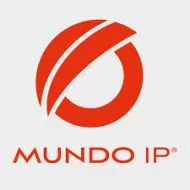- within Intellectual Property topic(s)
- within Intellectual Property and Technology topic(s)
- with readers working within the Healthcare industries
The European Patent Convention (EPC), also known as the Convention on the Grant of European Patents, of 5 October 1973, is a multilateral treaty instituting the European Patent Organization and providing an autonomous legal system according to which European patents are granted. As of April 2023, there are 39 contracting states that are party to EPC, to which Türkiye became a signatory on November 1, 2000. This system, which may be generally confused with the European Union, is a regional patent system that is separate from the European Union system. There may be a misconception that Türkiye is not included in the European Patent System since Türkiye is not a member of the EU. However, this system is a patent system independent from the European Union, which enables to carry out and complete the patent procedures before a single office. In order to ensure validation of the European Patents collectively in the member states of the European Union, the Unitary Patent system entered into force.
The contracting states to the European Patent system and the dates of entry into force are given in the list below. Apart from the contracting states, there are also extension states and validation states.
| AL | Albania | 1 May 2010 |
| AT | Austria | 1 May 1979 |
| BE | Belgium | 7 October 1977 |
| BG | Bulgaria | 1 July 2002 |
| CH | Switzerland | 7 October 1977 |
| CY | Cyprus | 1 April 1998 |
| CZ | Czech Republic | 1 July 2002 |
| DE | Germany | 7 October 1977 |
| DK | Denmark | 1 January 1990 |
| EE | Estonia | 1 July 2002 |
| ES | Spain | 1 October 1986 |
| FI | Finland | 1 March 1996 |
| FR | France | 7 October 1977 |
| GB | United Kingdom | 7 October 1977 |
| GR | Greece | 1 October 1986 |
| HR | Croatia | 1 January 2008 |
| HU | Hungary | 1 January 2003 |
| IE | Ireland | 1 August 1992 |
| IS | Iceland | 1 November 2004 |
| IT | Italy | 1 December 1978 |
| LI | Liechtenstein | 1 April 1980 |
| LT | Lithuania | 1 December 2004 |
| LU | Luxembourg | 7 October 1977 |
| LV | Latvia | 1 July 2005 |
| MC | Monaco | 1 December 1991 |
| ME | Montenegro | 1 October 2022 |
| MK | North Macedonia | 1 January 2009 |
| MT | Malta | 1 March 2007 |
| NL | Netherlands | 7 October 1977 |
| NO | Norway | 1 January 2008 |
| PL | Poland | 1 March 2004 |
| PT | Portugal | 1 January 1992 |
| RO | Romania | 1 March 2003 |
| RS | Serbia | 1 October 2010 |
| SE | Sweden | 1 May 1978 |
| SI | Slovenia | 1 December 2002 |
| SK | Slovakia | 1 July 2002 |
| SM | San Marino | 1 July 2009 |
| TR | Türkiye | 1 November 2000 |
In this article, we would like to discuss the place of Türkiye in the European Patent system.
As stated above, Türkiye is a contracting state that joined the system in November 2000. In other words, a Turkish citizen European Patent attorney residing in Türkiye can file a European Patent application. Of course, the said attorney must have completed the European qualifying examination (EEQ) before the European Patent Office. A person or company residing in a country that is not a party to the European Patent Convention should work with a European Patent attorney working in one of the countries that are party to the European Patent Convention in order to file a European Patent application. Therefore, European Patent attorneys residing in Türkiye, which is a party to the European Patent Convention, can be appointed as representatives for these applications.
After an application is filed, the examiners at the European Patent Office, headquartered in Germany, examine the application, and prepare search and examination reports. All stages of the patent application process until grant are carried out before the European Patent Office (EPO). After the decision to grant is issued for a European Patent, the applicant is requested to choose among the contracting states. Since validation of the invention in all 39 states imposes a serious cost, the applicant should designate the states with the most potential for commercialization of their invention. At this stage, according to the new practice, the member states of the European Union can be designated as a single state and thus the invention can be validated in the said member states of the European Union. We would like to discuss this option in another article.
Upon designation of the states in which the European Patent is intended to be validated, all or part of the specification of the granted European Patent according to the legislation of the concerned states is translated into the language of the state in which validation is sought.
The list below shows the respective translation requirements in detail by country. For example, while there is no need for an additional translation in states such as Belgium and Switzerland, it is necessary to translate the entire text of the specification into Turkish in order for the European Patent to be valid in Türkiye.
Patent holders who wish to protect their invention in Türkiye must file a validation application before the Turkish Patent and Trademark Office with the Turkish translation of the entire specification within 3 months from the publication of the decision to grant the European Patent. Of course, according to the legislation, a Turkish attorney must be appointed for foreign applicants to carry out this procedure.
Annex – Translation requirements for direct national validation
| Country | Translation requirement |
| AL Albania | Claims only into Albanian |
| AT Austria | Full text into German |
| BA Bosnia & Herzegovina | Claims only into Bosnian, Croatian or Serbian |
| BE Belgium | No translation needed |
| BG Bulgaria | Full text into Bulgarian |
| CH/LI Switzerland/Liechtenstein | No translation needed |
| CY Cyprus | Full text into Greek |
| CZ Czech Republic | Full text into Czech |
| DE Germany | No translation needed |
| DK Denmark | Claims only into Danish |
| EE Estonia | Full text into Estonian |
| ES Spain | Full text into Spanish |
| FI Finland | Claims only into Finnish |
| FR France | No translation needed |
| GB United Kingdom | No translation needed |
| GR Greece | Full text into Greek |
| HR Croatia | Claims only into Croatian |
| HU Hungary | Claims only into Hungarian |
| IE Ireland | No translation needed |
| IS Iceland | Claims only into Icelandic |
| IT Italy | Full text into Italian |
| KH Cambodia | Claims only into Khmer |
| LT Lithuania | Claims only into Lithuanian |
| LU Luxembourg | No translation needed |
| LV Latvia | Claims only into Latvian |
| MA Morocco | No translation needed |
| MC Monaco | No translation needed |
| MD Moldova | Full text into Romanian |
| ME Montenegro | Claims only into Montenegrin |
| MK North | Claims only into Macedonian |
| MT Malta | No translation needed |
| NL Netherlands | Claims only into Dutch |
| NO Norway | Claims only into Norwegian |
| PL Poland | Full text into Polish |
| PT Portugal | Full text into Portuguese |
| RO Romania | Full text into Romanian |
| RS Serbia | Full text into Serbian |
| SE Sweden | Claims only into Swedish |
| SI Slovenia | Claims only into Slovene |
| SK Slovakia | Full text into Slovak |
| SM San Marino | Full text into Italian |
| TN Tunisia | No translation needed |
| TR Turkey | Full text into Turkish |
In order for the translated specification to have proper protection in Türkiye, it is very important to remain faithful to the original text. In case of later confusion regarding the invention, errors arising from translation may cause problems before the court and correction thereof may lead to additional burden. Therefore, it is crucial to work with experienced Turkish attorneys in order to take action at the right time without causing loss of rights and to avoid problems arising from translation. European Patents, which are validated timely and with quality translation, protect the applicant with the same rights granted by a national Turkish patent for 20 years from the date of the international application.
The content of this article is intended to provide a general guide to the subject matter. Specialist advice should be sought about your specific circumstances.


